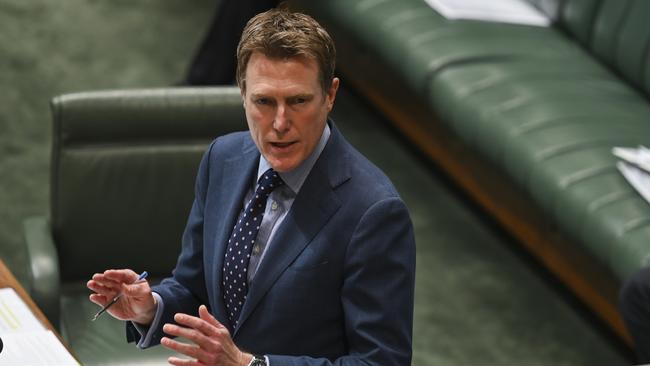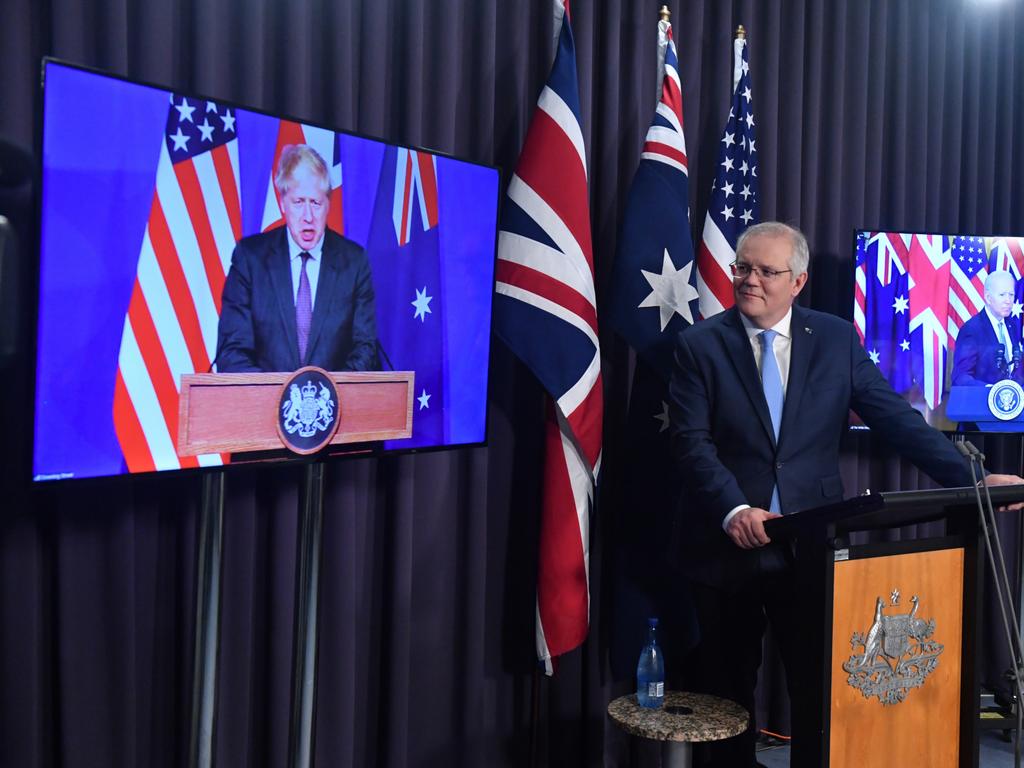We’re ill-served when only the rich can take on Aunty
The consequence of Christian Porter losing his ministerial position for accepting donations to cover legal costs will only embolden the ABC collective.

The likes of Clive Palmer, who held the Queensland seat of Fairfax for the Palmer United Party between 2013 and 2016, comes to mind. But not many others.
Ministers are certainly well paid. But they receive only a fraction of the remuneration received by chief executives of large companies. Most are paid less than the managing directors of municipal councils or leading media personalities. This means defamation cases, which can result in substantial costs even if some damages are received, are at best a huge risk and at worst can result in financial ruin.
On February 26, the ABC website carried a story by journalist Louise Milligan alleging that a politician had raped a woman three decades ago when he was 17 and she was one year younger. It was clear that the man in question was Porter. The woman, who tragically committed suicide in the middle of last year, was later referred to as Kate.
It was widely known that Porter, who was not given the opportunity of responding to the claims before the article went to print, was the target of Milligan’s attack.
He soon outed himself at a media conference in Perth. Since Porter had been accused of a very serious crime, perhaps exceeded only by premeditated murder, he had no realistic option but to sue the ABC and Milligan for defamation.
Porter emphatically denied the allegation concerning which there was no evidence beyond what Kate, who had suffered serious mental health problems, told some of her friends. Shortly before her death, Kate withdrew her police complaint.
In the event, Porter launched a defamation action against the ABC and Milligan on March 15. His legal team made two offers to settle and the ABC offered to enter into mediation on May 21.
A settlement was reached on May 31. No damages were paid and both parties agreed to cover their own costs. In addition, the ABC agreed to pay Porter’s mediation costs.
In other words, the only money that passed between the parties was from the taxpayer-funded public broadcaster to Porter. Porter paid no money to the ABC. The ABC also paid $780,000 in legal costs to external lawyers, beyond its own large legal department.
The ABC agreed to place an editor’s note at the end of the article on its website stating it regretted the fact some readers might have regarded Milligan’s article to be an accusation that Porter was a rapist. Most important, the ABC acknowledged that the claims in Milligan’s article did not meet the standard of proof in the criminal (beyond reasonable doubt) or civil (on the balance of probabilities) jurisdictions.
David Anderson, the ABC’s managing director and editor-in-chief, confirmed the details in an appearance before the Senate estimates committee on June 7. He said the ABC stood by Milligan’s story. And he appeared comfortable with the situation whereby the ABC published most serious allegations about a prominent public figure that did not meet any of the applicable legal standards of proof.
In a situation where a media outfit had published an article making allegations of the most serious kind that met no recognised standard of proof, it would be expected that the company in question would make a correction or a clarification and, if necessary, settle promptly.
The problem is that the ABC is not run like a commercial media organisation of similar size to News Corp, Nine or Seven West Media, which are accountable to shareholders. The ABC is effectively a collective run by its staff – most of whom are not into apologising for, or even recognising, errors of commission or omission.
Moreover, since the public broadcaster is almost wholly financed by taxpayer money to the tune of $1bn annually, it has unlimited funds to fight defamation claims to the end if journalists so demand and management is willing. In view of this, only a very desperate or a very rich person can afford to take on the ABC at law.
It so happened that Porter was no doubt desperate. He had been associated with a vile crime for which, if unchallenged, would surely destroy his political career – and ruin his reputation, to the grave and beyond.
In the circumstances, there was no option for him but to take some kind of legal action. In the event, Porter got the ABC to concede there was no evidence against him that would reach known standards of proof.
It would seem that some of Porter’s supporters anonymously set up a trust to help fund his legal action. Porter maintains that this is in accordance with the requirement of the Register of Members’ Interests – and that it is consistent with “previous members’ disclosure of circumstances where the costs of personal legal matters have been mitigated by contributions or reductions of fees”.
This makes sense. However, it remains to be seen what will be the outcome of the advice that Scott Morrison has sought on the matter from his department.
In the meantime, ABC journalists have been weighing in against Porter. For example, on Wednesday Radio National Breakfast presenter Fran Kelly interviewed former prime minister Malcolm Turnbull on the issue without mentioning that he was a Porter antagonist.
On Thursday, it was the turn of Geoffrey Watson SC, a well-known Morrison government critic. He told Kelly “everyone on the street” was against Porter on this issue and wondered, in hyperbolic mode, “if it’s the mafia” contributing to Porter’s legal fees.
The unintended consequence of Porter losing his ministerial position for accepting anonymous donations to cover legal costs would be to increase greatly the ability of ABC journalists to traduce the reputations of politicians by making it all but impossible for them to defend themselves at law.
Apart from multi-millionaires such as Palmer.
Gerard Henderson is executive director of the Sydney Institute. His Media Watch Dog blog can be found at theaustralian.com.au.







If Industry Minister Christian Porter is forced to quit the ministry on account of accepting anonymous donations to cover personal legal costs, then only super-rich politicians will be able to defend their reputations by means of defamation actions.